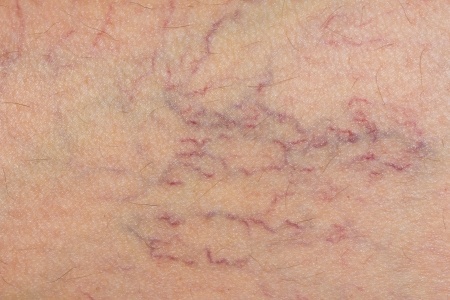A study led by researchers from the University of Aberdeen, which compared different treatments for varicose veins, found that laser treatment is the preferred treatment.
Around 30 to 40% of adults in the UK suffer from varicose veins, which are bulging and tortuous veins. They are caused by the valves in the vein leaking resulting in increased pressure in the veins. People with varicose veins may have symptoms of discomfort and pain and may continue to experience ankle swelling, skin changes and sometimes ulcers. The presence of varicose veins can lead to a reduced quality of life, which improves with treatment of varicose veins.
The study, published in the New England Journal of Medicine today (Thursday 25 September), was led by the Center for Randomized Health Trials and Health Services Research Unit at the University of Aberdeen and funded by the National Institutes of Health Research Technology Assessment Programme.
The researchers compared three different methods of treating varicose veins. These were surgeries that involve removing the veins by removing them, laser therapy that uses heat energy from the laser to close the vein, and foam injection, which causes a chemical reaction that causes the vein walls to stick together.
The study, involving 798 people who needed treatment for varicose veins, compared the three treatments and looked at how well they worked from both the patient’s and the clinician’s perspective. Participants were randomized to the different treatments at 11 vascular centers in the UK, including Aberdeen Royal Infirmary.
The study concluded that there were modest differences in quality of life in favor of patients who underwent surgery or laser therapy compared with those who underwent foam therapy.
The research also showed that while all three treatments reduced symptoms associated with varicose veins, fewer complications occurred with laser treatment than foam injection or surgery.
The researchers also found that foam treatment was less likely to close off the leaking vein, and so there may be an increased chance of needing more treatment in the future.
Lead researcher Professor Julie Brittenden, Chair of Vascular Surgery at the University of Aberdeen said: “What this study has shown us is that overall, for patients who are suitable for all three treatment options, laser is the preferred treatment. We reached this conclusion based on the success and cost of the treatment after six months, but we will follow the participants’ progress for another five years to determine the long-term consequences, for example of recurrent varicose veins, of each of the three treatments.”

